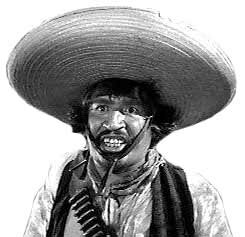Recently I had a stomach bug and had severe "indigestion," ehem, for several hours. As a result I became very dehydrated.
I just happen to out to eat later that evening. Typically I get a water with my meal but when the waitress was taking drink orders an image of a tall glass of root beer soda and a craving for it entered my consciousness. I drink soda only occasionally. I might have a ginger ale if I have an upset stomach or something.
In any case, I thought, wow, that's odd. I considered it for a moment and then thought, hm, a sprite or 7 up would be good for my upset stomach. I thought nothing more of it.
Also I do not snack very often, and if I do it's a granola bar, yogurt, or cheese or something. We do have lots of gummy type candies around the house and I had a strong craving for some, so I ended up eating a handful of juju candies.
Later yet as I was reclining in the living room I was thinking how unusual it was for me to have craved root beer and relatedly the candy. The. Of course it occurred to me that it was likely related to the "indigestion" and apparent dehydration.
Sure enough, sugar craving has been noted with dehydration:
6 Unusual Signs of Dehydration | Everyday Health
"When you’re dehydrated, it can be difficult for some nutrients and organs like the liver which use water to release some glycogens and other components of your energy stores, so you can actually get cravings for food,” Higgins says. While you can crave anything from chocolate to a salty snack, cravings for sweets are more common because your body may be experiencing difficulty with glycogen production, he says."
Obviously I'm not revealing any major insight here. However, I remain amazed at how my body/subconscious was able to guide my apparently clueless conscious self in two instance of food choice. How did my body/subconscious know that root beer would give it what it needed? Obviously my body remember that root beer contained chemicals that it needed and was able to communicate this to my executive system, even though I had the option of choosing water anyhow, which I almost did. Same with the gummy candy. My body/subconscious mind knew they were in the house and knew how to get it in my belly.
It was a very cool experience.

